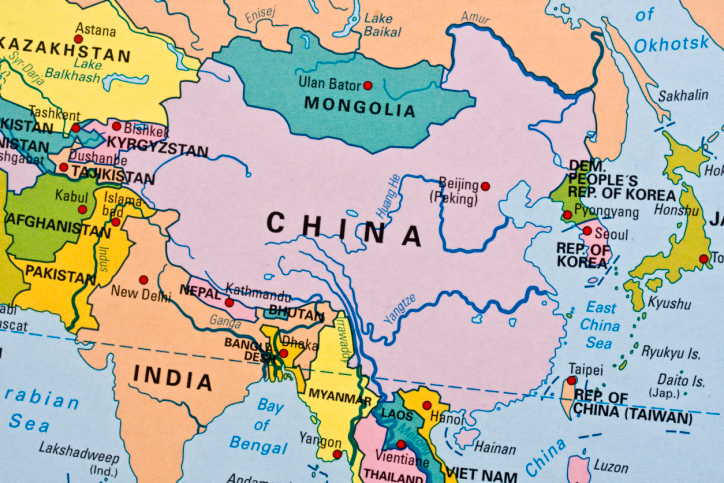DETROIT – Automotive retail consultancy Urban Science released its first Franchise Activity Report (FAR) for China today, reporting that as of June 30, 2012, accounting for the 80 key brands that Urban Science regularly tracks, the country is home to 19,890 automotive franchises.
- With 19,890 franchises, country has room for more dealerships; big opportunity remains in tier 2, 3 cities
- Large dealer groups will influence network development
Urban Science, which has maintained a report on U.S. dealership and franchise information since 1990, recently completed its first 24-month collection of data for the Chinese market. The data shows that sales throughput – the average number of sales per dealership – is estimated at 980 vehicles per year based on LMC Automotive’s projected sales volume of 19.5 million. By comparison, average throughput in Europe is approximately 200 to 300 vehicles per year and in the United States, roughly 700 to 800 vehicles per year.
“The sales network in China is at a crossroads,” said Hamilton Gayden, managing director, Urban Science China. “Until this point, automotive manufacturers have been largely concerned with getting enough operators established to manage theirsales. Today, with the sales pace calming, manufacturers are rethinking their retail footprints and being much more strategic, shifting from a network built simply on relationships to – for the first time – a true network plan driven by data.”
Large-volumebrands, including Sino-foreign joint ventures such as Shanghai VW, Shanghai GM, FAW VW and Guangzhou Honda, are all well established in China’s key regional markets with at least one dealership in all tier 1, 2 and 3 cities, which are concentrated along the coast, stretching from Dalian in the Liaoning province down to Guangzhou and Hong Kong. According to Urban Science, these luxury brands will be the first to add additional locations and will begin to turn their attention to dealer performance and customer service.
Urban Science has also noted the tremendous influence that dealer groups are building in China. Chinese dealer groups are larger than those in the United States andrepresent a significant portion of the new vehicle sales revenue, as much as 14 percent, compared to the United States, in which the nation’s top 25 dealer groups accounted for approximately 10 percent of new vehicle sales last year. Furthermore, China’s top 100 dealers experienced new vehicle sales growth of 41 percent over 2011, far exceeding the industry average of 2.45 percent.
Since China has nearly nonexistent franchise laws, the size of dealer groups gives them a significant voice in automotive manufacturers’ network planning and the establishment of sales territories. Access to low-cost capital and strong relationships with local government will likely lead to a continued increase in concentration of franchises and vehicle sales among a relatively small number of dealer groups, an arrangement unique to China.
Current trends indicate dealer groups will continue to gain in size and influence as they merge and acquire the smaller pool of dealers located in the tier 3 markets, which are adjacent to tiers 1 and 2, but slightly more inland, and tier 4 markets, which are typically located in the nation’s interior. There is tremendous growth in these markets, largely driven by dealerships representing indigenous China brands.
“With such a fast-growing network and the demand for strong dealer operators, manufacturers are going to need to keep a close eye on the success and profitability of their dealerships,” Gayden added. “As additional influences such as social media and a growing used car market come into play, the network is going to increase in complexity as well as size.”
About the Automotive Franchise Activity Report
Urban Science maintains a list of current new vehicle dealership and franchise information for all car and light truck brands in the United States. Compiled on a monthly basis, the census is the most reliable source of dealership statistics. The data comes from avariety of sources, including feeds from automotive manufacturers as well as phone and field verification. Urban Science has been collecting this information since 1990 and compiles a yearly analysis every February for the previous year in its annual automotive Franchise Activity Report. After tracking franchise activity in China for 24 months, the firm released its inaugural Chinese Franchise Activity Report, the industry’s only census analyzing the Chinese automotive retail network, in August 2012.
About Urban Science:
Founded in 1977, Urban Science is a global retail consulting firm that takes a scientific approach to help companies identify where they should allocate resources in order to increase their market share and profitability in the most effective and efficient manner. With headquarters in Detroit, Urban Science serves its global clientele from offices in the United States, Spain, UK, Germany, Italy, France, Australia, China, Mexico, Russia and Japan. For more information on Urban Science, visit www.urbanscience.com.








